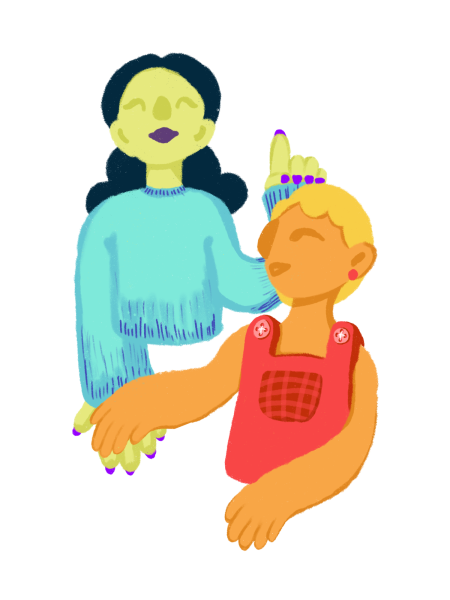How JK Rowling Failed the Harry Potter Fanbase
September 1, 2020
The Harry Potter franchise was a staple of many a childhood. First published in 1997, it quickly became massively popular, making J.K. Rowling the first person to become a billionaire by writing alone. As a child, I, like many others, idolized Rowling for both her books and her charitable personality; after all, she was the first author to become a billionaire from a single series. She then lost her billionaire status from donating to various charities. But, despite her position as an icon and influencer, she managed to hide her political views that would change how the entire world saw her.
For years, Rowling’s personal views and online comments have been the source of criticism from many Harry Potter fans–from revealing that Dumbledore was gay in an interview after the final book was published, even though there was little to no textual evidence for it in the series itself, to claiming that Hermione was black, even though both the books and movies disputed it. While many fans turned away from the Harry Potter fanbase as a result, these comments were nothing compared to Rowling’s recent actions and tweets regarding transgender youth.
In the past, Rowling has had a tendency to like and follow Twitter accounts that post transphobic content, giving the impression that she condones their views. Recently, however, she has become much more vocal about her beliefs, leading to her being branded as a TERF among Harry Potter fans. TERF is an acronym coined in 2008 and popularized by a blogger named Viv Smythe that stands for ‘trans-exclusionary radical feminist,’ or someone who advocates for women’s rights without also advocating for the rights of trans women. On June 6, Rowling took to Twitter to state her beliefs regarding transgender people outright.
Her first tweet set off a storm of backlash. She responded to an article talking about “people who menstruate” by mocking the word choice and stating that the only people who menstruate are women. This was seen as a blatant dismissal of the thousands of trans men who menstruate, trans women who don’t, and genderqueer people who do and do not. For the rest of the day, Rowling defended herself with increasingly absurd claims, including citing a friend of hers who she described as a “self-described butch lesbian” agreeing with her. She also wrote an essay on her website defending her views, which manages to invalidate both trans men and trans women in under 4000 words.
The backlash against her following tweets ignited a call to participate in Death of the Author, a practice in which fans of a certain book series separate the author from their work following a display of bigotry from said author. It is an attempt to suggest that the author’s views have no weight in their writing. The term was originally coined in a 1967 essay by French literary critic Roland Barthes, who urged readers to “liberate a text from interpretive tyranny.”
However, Death of the Author, while often used in a well-intentioned way, has many problems. Separating Rowling from Harry Potter allows readers to refuse to mention how her bias has shaped her writing. While her beliefs are often not reflected in the stories she tells in the Harry Potter series, readers are now forced to view the books through the lens of personal bias.
It doesn’t stop there, either. The consumption of Rowling’s media, even after a reader separates her and her beliefs from her series, makes it so that she still profits off her story. Purchasing Harry Potter merchandise, even if the buyer refuses to acknowledge Rowling’s influence in the books, still monetarily benefits her.
Death of the Author also raises the problem of being unable to recognize the impact of her views on the story. Rowling herself is a white, cisgender, straight woman. Her main characters are all white, cisgender, and straight. Her personal views and biases directly shaped how she told her narrative. Hermione Granger, a strong female character, is shoved into the stereotype usually referred to as “not like other girls” that primarily perpetuates that a strong female character has to be unique and denounce femininity. The one time Hermione is allowed to be feminine in the whole series is in The Goblet of Fire in which she dresses up in a feminine dress for the Yule Ball. This scene ends with her being torn down at every opportunity by men around her, and she is never seen to be very feminine for the rest of the series.
This is only one of the many harmful stereotypes that Rowling perpetuates in her books, and Death of the Author seeks to remove the context for these narrative decisions, making it so that there is no way to read and understand the meaning and implications that these choices infer, even though we cannot read her books and completely disregard the ideals that caused narrative decisions like the Yule Ball scene to be made.
It’s hard, as a Harry Potter fan, to watch a series I adored growing up being stained with the backwards beliefs of the author who wrote it. The best way to respond to this, though, is to read the books and recognize the stereotypes and biases of the author yet seek to enjoy the books despite them.






